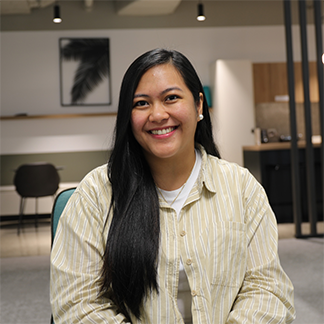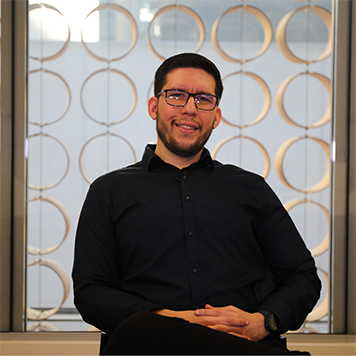Connecting science with business leadership
James David Motta, MBA (specialisation in Health Service Management)
Many of us, when we were children, would have been asked the question ‘What do you want to be when you grow up?’ I always knew I wanted to do medicine. Given my fascination with the brain, I always said that I wanted to become a neurosurgeon. However, the journey to achieving my goal was not straight forward. There were ups and downs. I have had three turning points in my life and at each junction I have learned something valuable that has shaped me into the person I am today.
First turning point: in London
I was born and raised in London, UK - my parents are from Cali, Colombia. After graduating with a Biomedical Science degree, I applied for medical school, but was unsuccessful. I proceeded to study a Master of Science as a pathway into a medical degree. Again, I was unsuccessful in getting into medical school. I started questioning whether I was meant to become a medical doctor. I did not want to start in a new industry but find a role that utilised the knowledge and skills I already had and aligned with my strengths and passions. Upon reflection, a new path opened for me in clinical data management.
I enjoy the process of research and using science and technology to find answers to life’s big questions about the brain; ‘How and why does the mind work? How does human behaviour become influenced by society? What fascinates us?’
Along with the scientific aspect of research, there’s also the ethical and philosophical side. Clinical research involves dealing with people’s lives and trying to preserve what is important. When you’re working in any form of research, patience is key as answers can take months, years or even decades to uncover.
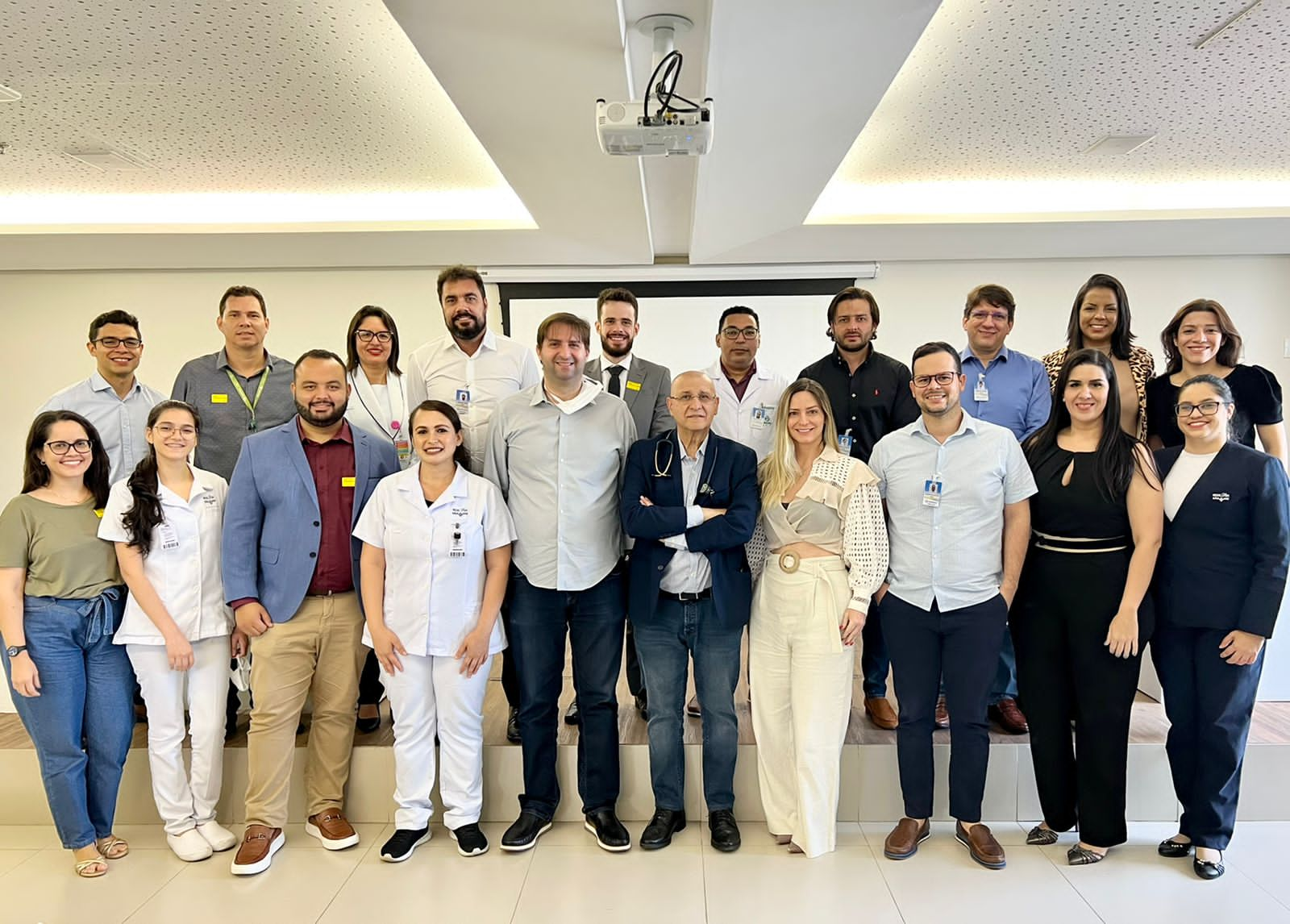
The Medtronic clinical study team and I (back row, first person to the left) during a training session at Recife, Brazil, August 2022. I was working as a Clinical Research Monitor.
Second turning point: in Chile
I met my wife in London in 2011. In 2012, she had to return to Chile, and I chose to follow her. In 2014, while I was studying for a PhD - which later converted to a second master's degree - I suffered a neurological disorder known as Transverse Myelitis, just 6 weeks away from our wedding day.
Transverse Myelitis is a disorder characterised by an inflammation of the spinal cord which led to me being paralysed from neck to toe. I was told by the neurologist that I could possibly never walk again which led me to question my life ambitions, career and family goals. For the sake of my dreams and future aspirations, I knew that I couldn’t give up and needed to do everything possible to resume a ‘normal’ adult life as a student and newly wedded husband. I went into rehab and slowly learned to walk again. I graduated with my second master’s degree in science 2 years and 3 months after the incident. I have learned to appreciate every aspect of life – my family, friends, being able to move – everything. To this day, I am 98.5% recovered.
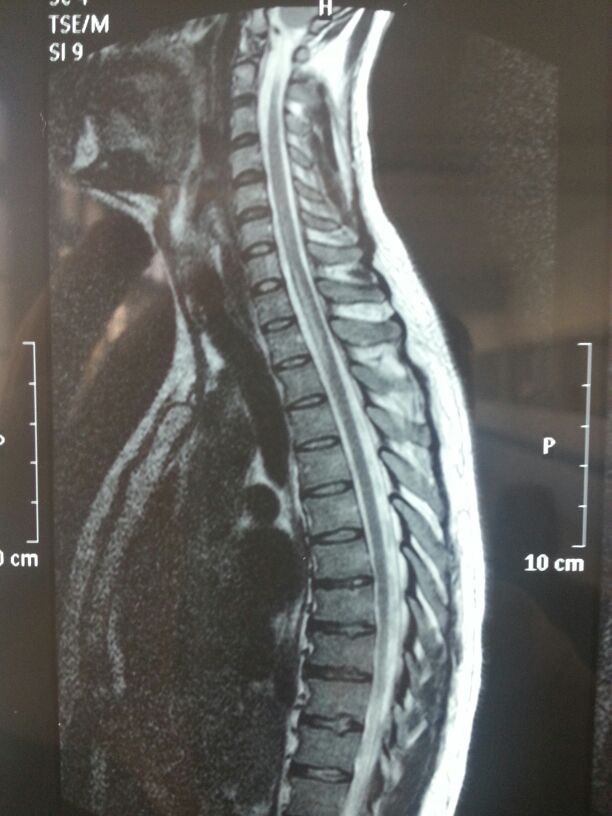
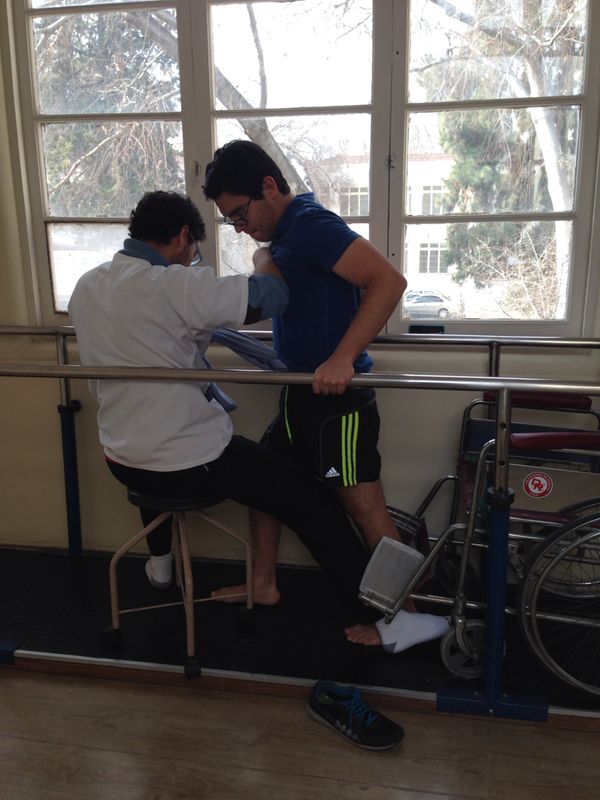
Third turning point: in Australia
My family and I wanted to come to Australia for a better quality of life. I was previously working for Medtronic, a healthcare technology company, and in 2023 was undergoing the process to be transferred to their Adelaide or Sydney offices. However, this didn’t happen due to working visa issues, leading me to consider taking up further studies.
My background was in clinical trial management along with administrative, academic, scientific and project management experience, giving me the incentive to study an MBA. I wanted to be able to connect my background in science with the business and leaderships skills I needed to make an impact within the Australian healthcare industry. This is why I enrolled into an MBA at Kaplan Business School (KBS) with a specialisation in Health Services Management.
KBS offered hybrid learning with the curriculum delivered through interactive workshops and practical assessments. I found the teachers to be very experienced, and the content enriching and well- referenced. One of my tutors accepted to mentor me, giving me valuable career advice during my job search and internship experience. I have found KBS to have a warm and open approach that few universities, in my experience, had ever shown.
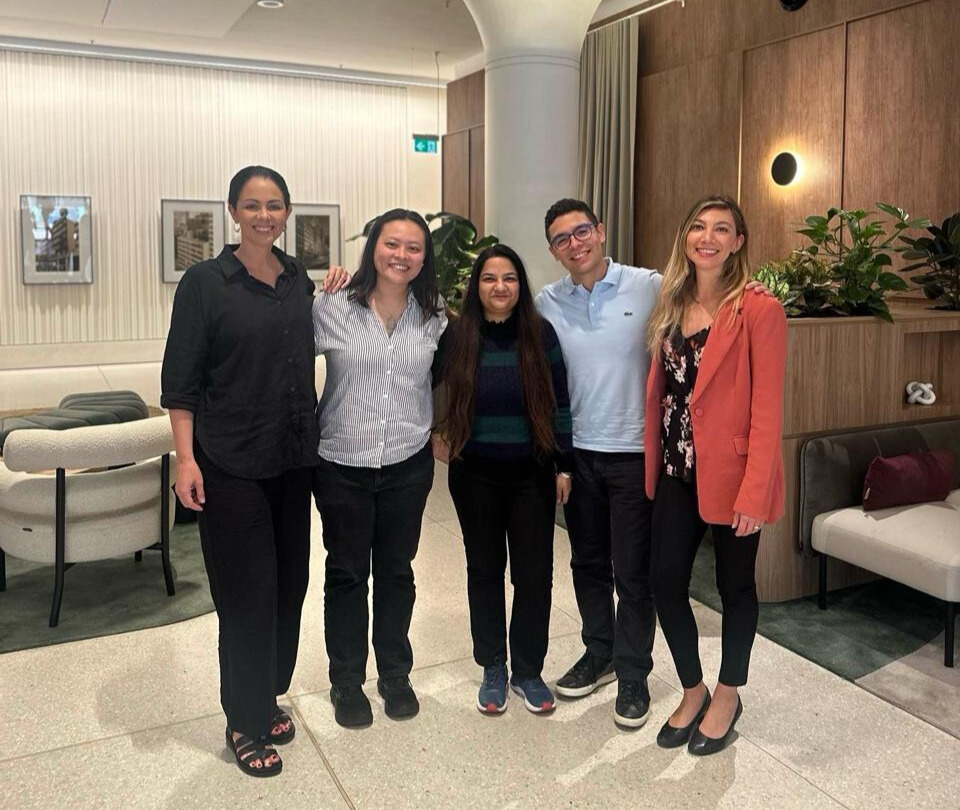
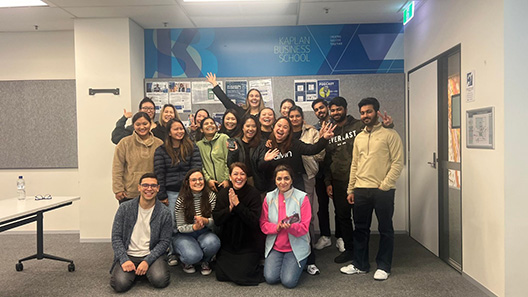
Posing with my ‘People, Culture and Contemporary Leadership’ subject classmates (front line, first from the left), May 2024.
Getting my job at HammondCare
While I was completing an internship subject at KBS, the opportunity for academic internships came up. I wasn’t going to apply given the visa and working limitations imposed as an international student, but one of my peers advised me that an internship was a strategic route into the industry sector here in Australia. So, I applied.
I started my academic internship at HammondCare, which was a non-for-profit company that specialised in aged care, dementia care and palliative care, and included clinical research. My role during my internship was to support the Head of Quality, Governance and Risk for HammondCare’s services in hospitals.
One of my projects was conducting a gap analysis that involved retrieving and analysing data on the National Safety and Quality Health Service Standards (NSQHS) within the hospital site for aged care. I learned so much in such a short period of time (12 weeks) particularly how business policies and processes were vital to the welfare of the company and the aged care industry in Australia.
After my first 6 weeks at the internship, I happened to be in a fortunate position whereby a role as 'Internal Policy and Document Control Manager' became available within the Quality, Governance and Risk team. I had previously emailed the Chief Risk Officer to communicate my strong interest in a more permanent position. After brief discussions, I was offered the role. I’ve been working here now for over 6 months, and I am excited that HammondCare is keen on keeping me on.
My mentor at KBS has had a big impact on my career direction, and I have also been supporting other KBS students completing their internship at HammondCare; overseeing their work and giving advice about following their passions and interests.
Working in health services
Working in health service management requires a diverse range of skills and personality traits. Skills can include:
Managerial & Organisational Skills – planning, executing and overseeing clinical operations.
Communication & People Skills – maintaining communication with primary investigators, good relationships with other clinical staff and facilitating external and internal communication.
Analytical & Critical Thinking Skills - reviewing data and discrepancies in protocols, identifying issues and devising solutions.
Writing and Editing - documenting and writing your findings as well as formatting and editing clinical research manuscripts.
Personality traits can include:
Integrity - maintaining trust and ethical standards.
Wisdom – having good judgment, foresight, and the ability to apply knowledge effectively in complex situations.
Collaboration - working effectively in teams through involvement in editing protocols with others and facilitating coordination with various stakeholders.
Attention to detail - crucial to managing policies, procedures, and documents for regulatory compliance, performing data verification and reviewing discrepancies.
Diligence & Patience – the detailed and meticulous nature of research work such as ensuring regulatory compliance and managing complex data requires patience and diligence.
My long-term goals
I believe that what you do in your private time is what you reflect out in public. I love reading about things that relate to my life passions, and I constantly reimagine the person I want to become. I try to make everything in my day align with my personal and professional goals. It is important to be proactive and prepared for whatever you want to pursue in life.
There are still many things I want to achieve. Within the next 5-10 years, I would like to have built a neuroethics ‘Think-and-do Tank’ that influences the establishment of legislation and policy work around the use of neuro technology, healthcare and research. I want to be more involved in government work, whether that be academic, policy or clinical trials related and pursue a PhD within a neuroethics-related field.
Want to connect with James?
https://www.linkedin.com/in/james-motta/
Advance your knowledge and leadership skills in the health sector with our MBA (specialisation in Health Service Management). You can also read our ultimate guide in doing an MBA in Australia.

